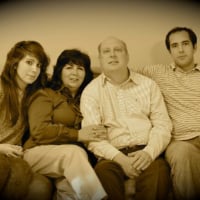www.youtube.com

Negative Evidence
wondering what any of you might think of the discussion on this video:
https://www.youtube.com/watch?v=FHpJjJN_FVs
@Yancey/Yancy Family Genealogy
@Nanney Family Genealogy
@Justiss/Justice Family Genealogy
@Kavanaugh Family Genealogy
@Ansley Family Genealogy
項留言
-
The link with the picture works. The written one sent me to a youtube about cluster research by the same author.
0 -
I have often told people that there are two ways to prove your ancestor is your ancestor...either prove that he is or prove that everyone else isn't.
Negative evidence is definitely needed in many research processes. One of the ones that I think of as most obvious is when you expect your ancestor to be in a particular set of records, but you do not find him. What can you learn from that? You need to look at the reason the record set was created and who was eligible to be in that record set...for example it might be listed as a 'census' but it is actually a head of household, or only men over 21 who own land. Most critically of all, you need to record this as a source in your research and mark what you learned about your ancestor because of him not appearing in it.
I do think that this video might be over-simplifying the concept, though. There are many ways this concept of Negative Evidence can be used in your research and he only touched on a using negative evidence to ignore families that your ancestor could not have been a part of. I've done this with an uncle in a family that changed their surname. So proving that he was indeed the missing uncle involved using the information he put on his marriage license and later censuses with his wife and comparing that to all the families that had the same father-son name combinations in every census between his birth and his marriage. There were none with his surname that fit. It only made sense if you had the family story of the surname change. This process took hours of research, though.
So I figure that while what he says it true, it is only a stub.
As he started listing records to look at for more information about the ancestor, I was seriously wondering what level of researcher he was speaking to, as most of the records he suggested were ones that I would have already looked at before I ever thought about using negative evidence to tie my ancestor to his currently unknown family.
0 -
Interesting and some useful information.
0 -
This is highly effective. I use these strategies all the time. It's laborious, but works.
0